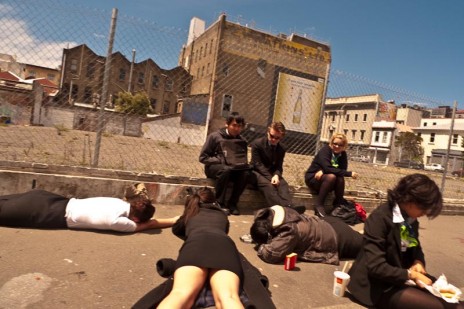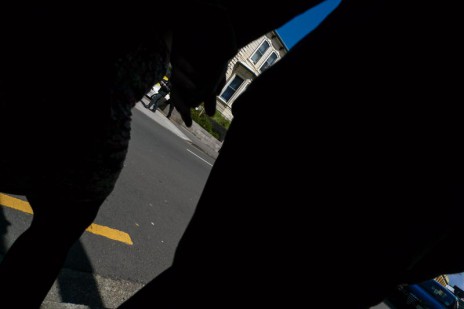This brings up the first issue. I wonder of this incident has been the death knell for that kind of name suppression. It seems to me that, rightly or not, people just do not respect this use of name suppression. I'm referring to when the suppression is for the benefit of the perpetrator, as opposed to the victim, and when the intent is to protect a reputation, as opposed to allowing for the completion of a fair trail. Given the way modern communication technology operates, I just can't see any other similar decision holding any more authority than this one.
Secondly, it's very rare that I have any sympathy or find much agreement with right-wing blogger Whaleoil (Cameron Slater), but I do broadly support his stance on this issue. Slater is in some trouble with the authorities after allegedly giving out enough clues to identify the entertainer and another celebrity who also has name suppression. I do not know so much about the latter case and the circumstances are different, so for the purposes of this post I'll be addressing the first case only.
I see this matter as basically being a question of whether the courts should concern themselves with protecting the reputation of an offender. The reason given for the discharge without conviction and permanent name suppression is that otherwise the consequences for the offender would supposedly have been out of proportion to the offence committed. Finlay Macdonald touched on this in a Sunday Star Times article (quoted from this Hard News column):
Yet the media are the very ones who create such a special class in the first place, and there's something a little disingenuous about stoking society's celebrity obsession on the one hand while demanding celebrities receive no special treatment on the other. One might even call it hypocritical.
You can call it the price of fame, but surely the price should be relative to the alleged crime.
Well, I don't like the way the media encourages the public's inane celebrity obsession either, but that is a separate issue. It is not hypocritical for some, including some in the mainstream media, to maintain that celebrities should be treated the same as "regular" citizens when it comes to conviction and sentencing for their criminal behaviour. As for the price being relative to the crime, it seems to me that the court's role is to ensure the sentence it applies is fair for the crime committed, taking reasonable account of the circumstances in which the criminal act took place. It is not its role to protect the accused from the wider repercussions of their own behaviour. That is what is happing here that Macdonald and Russell Brown et al don't seem to appreciate: the perpetrator of a crime is being given special protection from the consequences of his asinine actions simply because those actions brought him to the attention of the courts.
Consider another recent example of a misbehaving celebrity: the Tiger Woods affair (well, affairs). I've found much of the reaction to his transgressions somewhat sanctimonious. I don't condone what he did, but is it really that bad in the scheme of things? Should we even be so precious when we find out that many of these sports superstars are not (shock horror) the ideal role models we seem to want them to be? Macdonald again, on the NZ celebrity case:
The offence wasn't trivial, but in the context of the horrors the courts routinely deal with, it's hard to argue it merited more coverage than a far more serious assault by a nonentity.
Wouldn't this sentiment apply to Woods? Does he deserve more scrutiny and media coverage than any number of other people who have engaged in similarly dodgy conduct? The NZ celebrity, by comparison, has benefited from his conduct being regarded as actually criminal - putting it before the court and thus providing the option of name suppression at the conclusion of the process. As I suggested on Public Address [see comments for my original typo], the way for a celebrity to protect his reputation from the damage that can come from behaving like a fuckwit is to avoid behaving like a fuckwit. His reputation is his to look after, not the courts. Had the judge decided not to suppress the identification of the offender, any price this celebrity paid in terms of his reputation should be seen as the result of his own actions, not as a punishment of the court.
Back to Russell Brown from his blog:
Ironically, had he actually been named, the man would have been guaranteed a sympathetic run from the same media organisations who have been pursuing him -- in exchange for an interview. The Sunday Star Times was, for example, only too happy to softball Clint Rickards in exchange for pictures with his daughter. Such is the trade of celebrity value. The moral line can easily be moved to suit.
Yes yes, the media can be pretty shit. A capricious, shallow, hypocritical lot - well, much of the time. But the 'pro-suppression' arguments seem to be more about a distrust and (understandable) dislike of the way some aspects of the media work in regards to this sort of thing, rather than actual philosophical objections in terms of the broader justice issue. A more legitimate concern would be with why is the media and society in general so ridiculously celebrity obsessed, and relatedly, why does society naively persist in treating celebrities as role models or paragons of human conduct?


